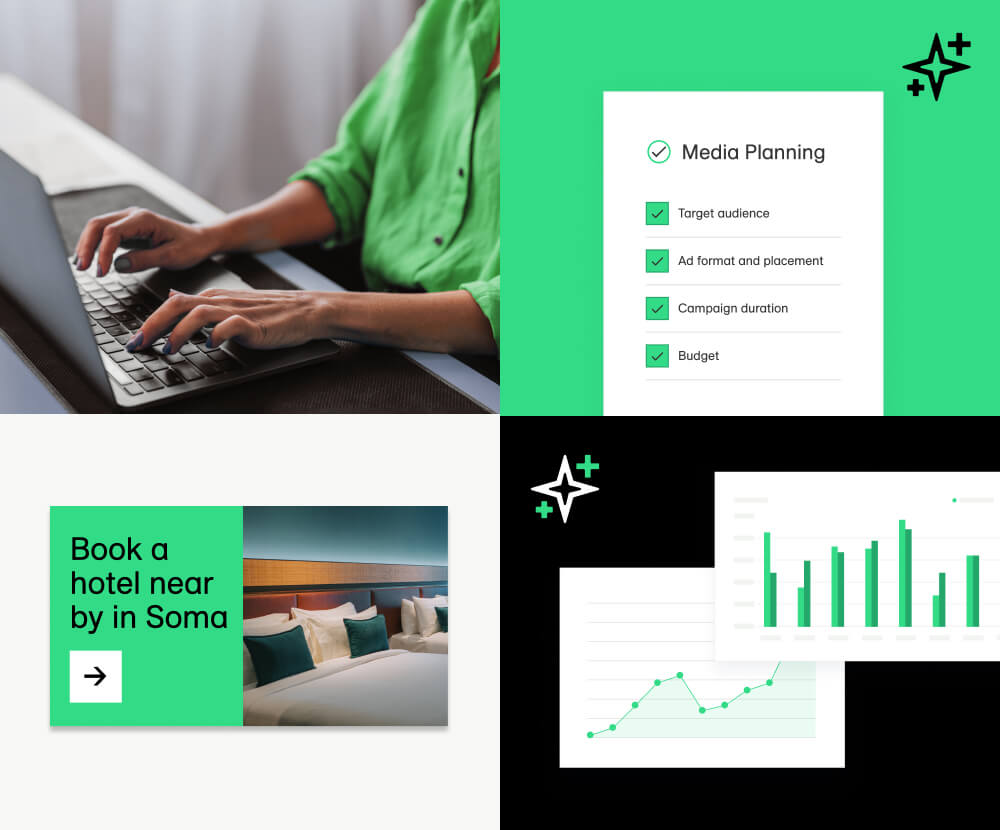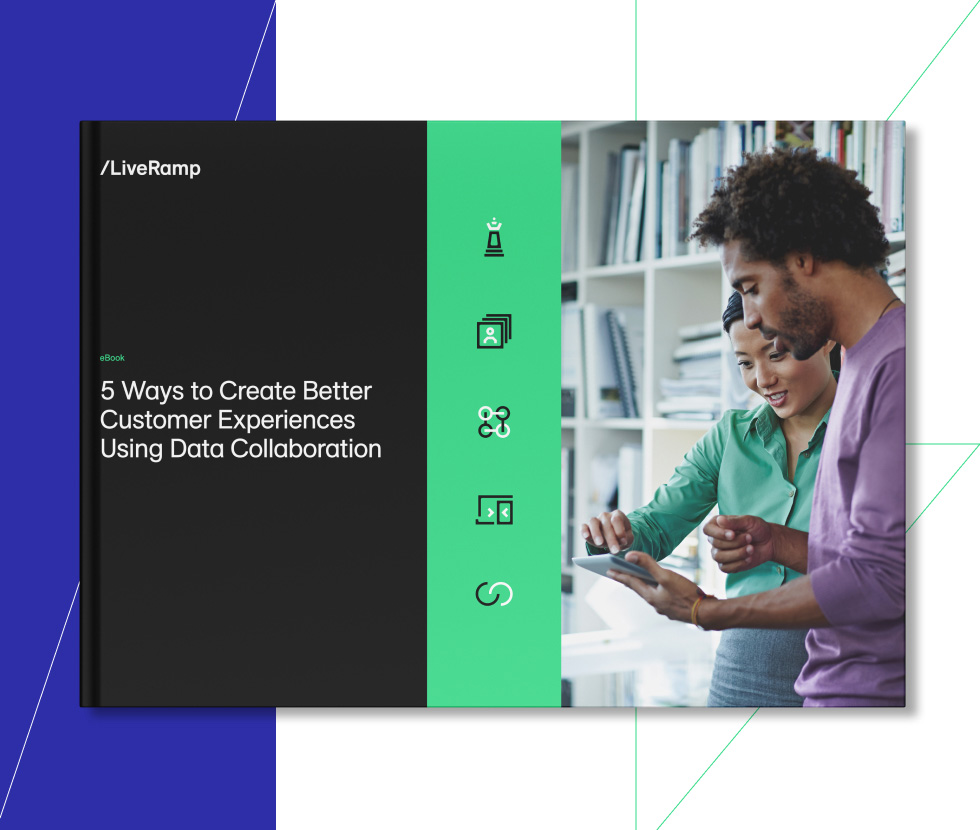AI Agents in Marketing: What They Are, Why They Matter, and How to Prepare

Chances are, you’ve already woven AI into your marketing workflows – whether that’s building custom research GPTs or using no-code tools to generate and test campaign creative. But even the most powerful AI marketing tools still rely on you to guide every step. That’s about to change.Agentic AI – AI that can operate independently – is poised to transform every marketing discipline, from brand and PR to content and digital. It’s an exciting but major shift. With change moving this fast, knowing how to navigate it can feel overwhelming.Let’s break down what marketing AI agents are, why they matter, and how you can get ready for what’s next.
Key takeaways
- AI agents can take on entire marketing workflows, including planning, launching, and optimizing – without you having to steer every step.
- When they work together in specialized teams, agents free you up to focus on the vision while they handle execution in real time.
- The real power comes from fueling agents with clean, connected, and permissioned data through smart data collaboration.
- Now’s the time to experiment, get your data house in order, and line up the right partners so you’re ready for what’s next.
{{data-collaboration-use-cases}}
What are AI agents in marketing?
AI agents are autonomous entities that can plan, execute, and optimize marketing tasks across the customer journey – without constant human instruction. Unlike traditional AI or automation tools, these agents act independently in pursuit of defined goals. AI agents can also interact with other agents across marketing workflows. When coupled with access to your business’s unique context and proprietary data, AI agents become a powerfully specialized, always-on team ready to help you drive growth.
How marketers can work with AI agents
AI agents operate best in teams, with each agent focused on a specific skillset – creative development, media optimization, analytics, and so on. At the center is a “superagent” or orchestrator that coordinates their efforts. Picture this: You define a business goal. Your superagent activates a creative agent, a media planner agent, and a measurement agent to launch and manage a campaign. These agents test, learn, and improve in real time – while you stay focused on high-level strategy.AI agents don’t eliminate the need for human marketers. You’re still the head coach. Vision, storytelling, judgment, and customer empathy are uniquely human qualities that will define success for human and agentic teams alike. When human leadership meets autonomous execution – powered by trusted, high-quality data – marketing becomes faster, smarter, and more effective.
Why marketers should care about AI agents: benefits and examples
Agentic AI will change how you interact with tools and platforms. We may soon see what were traditionally application-based tools replaced by AI agents built on top of data and workflows that human marketers can engage with using natural language. This is important because you no longer need deep expertise in how to achieve an outcome.A marketer can define the target business outcome and use a team of AI agents to recommend a strategy or the most optimized series of tactics needed to achieve that target. Here’s an example: Say you’re a car dealership trying to move last year’s models in Atlanta and Boise. Give your team of marketing AI agents the goal of moving that inventory by the end of the quarter, and they can analyze market signals, select channels, launch the campaign, optimize media, and report performance – without manual coordination.
Benefits for marketing practitioners
- Drive better outcomes: Deliver more precise targeting and stronger results with continuous AI optimization across media, creative, and personalization
- Increase speed and efficiency: Automate data-driven tasks and unlock near-limitless experimentation
- Multiply impact: Integrate and scale measurement, decision-making, and continuous performance improvement across channels and markets simultaneously, 24/7
Benefits for marketing leaders
- Multiply your team’s capabilities: Strengthen the analytical power of every marketer
- Create seamless workflows: Connect forecasting, optimization, and creative testing into one intelligent system
- Accelerate feedback loops: Unlock continuous optimization based on real-time performance data, not quarterly reviews
Want to dig deeper? Watch our on-demand webinar Making Agentic AI Smarter Through Data Collaboration to explore how forward-thinking marketers are preparing for this shift.From forecasting performance to executing creative, channel strategy, and measurement across teams, AI agents can streamline workflows, flag issues, and keep campaigns on track – all while learning and optimizing in the background. What might more specific use cases look like? Here are some examples below:
- Audience building and testing
- Creative optimization
- Hyper-personalization
- Media planning and buying
- Incrementality measurement
- Partnerships and collaboration
Audience building and testing
A CPG brand exploring category cross-sell asks their agent to test whether sunscreen buyers are likely to convert on a new moisturizer line. The agent builds the audience, selects the best retail media networks to run the test, secures brand safety approvals, and launches the campaign – automatically adjusting based on performance signals.
Creative optimization
A retail brand launches 20 creative variants of a back-to-school campaign. A creative agent monitors performance across demographics and channels, then generates and tests fresh assets for top-performing segments – ensuring brand voice and design rules are applied.
Hyper-personalization
A hospitality brand uses agents to send dynamic hotel and activity suggestions to consumers based on their weather, booking history, and travel style – crafting and delivering personalized messages on their favorite social platform and rideshare app.
Media planning and buying
A luxury auto brand wants to reach high-income individuals considering an EV upgrade. The media agent builds a plan across digital, out-of-home, premium CTV, and native display in financial publications – prioritizing placements during key commutes and news-reading times. As conversion signals come in, it dynamically shifts investment toward channels driving dealership visits.
Incrementality measurement
A beauty brand questions whether sales of its new lip gloss were driven by a social media campaign or existing customer loyalty. They task an agent to design a holdout test, compare conversions, and deliver a visual dashboard explaining the true incremental lift.
Partnerships and collaboration
A health and wellness brand partners with a fitness app to promote a new line of protein supplements. AI agents from both companies identify shared audience segments like post-workout snackers or marathon runners, test messaging variations, and optimize cross-channel performance.
Data collaboration: the key enabler for agentic AI
As consumers navigate more channels, platforms, and devices than ever, signal quality has become the key input to better marketing results. Likewise, marketing AI agents are only as effective as the quality, depth, and consent of the data signals that inform them. The businesses that succeed will be those that can provide their AI agents with the richest data signals – combining their first-party data with permissioned signals from across platforms, devices, and their partner ecosystem.That’s where data collaboration comes in. Data collaboration is the responsible gathering and connecting of data from various sources to unlock combined data insights that were not achievable in isolation – enabling the accuracy, depth, scale, and governance that helps you unlock the full potential of agentic AI. Let’s look at how:
Accuracy
If the data feeding your agent is incorrect, you can't trust your agent's output. Data collaboration built on a consistent identity framework eliminates mismatched or duplicated records, providing accurate inputs so your agents are set up for success.
Depth
Your first-party data is valuable, but limited. Data collaboration with trusted publishers, platforms, and complementary brands unlocks new intent signals across more context and touchpoints, giving agents the holistic view of the consumer journey they need to make the best recommendations.
Scale
A unified consumer view is powerful, but scaling that across millions is transformative. By connecting your data with a network of trusted partners, you gain more than reach – you tap into a living, learning ecosystem that feeds your AI agents richer, broader, and more actionable intelligence. That’s how you unlock powerful network effects that accelerate performance, amplify ROI, and unlock growth that’s only possible through collaboration.
Governance
Consumers and regulators aren’t blind to the growing importance of data in an agentic world – and the implications for misuse. It’s imperative that marketing AI agents use permissioned data in the precise use cases that consumers and data owners have agreed to. Technology like data clean rooms provide a secure environment for data collaboration while ensuring each party’s privacy and governance controls are enforced, helping AI agents drive more value.
How marketers can prepare for agentic AI
1. Learn what’s possible – and where it’s important for humans to lead
While agentic AI in marketing is still in its infancy, opportunities are growing at breakneck speed. Is your human team educated, curious, and experimenting with what’s possible? Are you working with colleagues or partners who know what to do with your data, how to set governance controls, and where to implement AI agents into your workflows – or transform those workflows altogether?
2. Audit your data readiness
Be honest – how messy is your data? Still today, many businesses don’t have their data in a place to take advantage of the data collaboration use cases that are already driving results for brands like Delta Airlines, U.S. Bank, and Hershey’s. Assess whether your data is clean, connected, and consented, so it’s ready for the agentic starting line.
3. Start collaborating now
Marketing has always been a team sport, and in an agentic future, collaboration becomes mission-critical. No brand, publisher, or platform can thrive in isolation. Now’s the time to identify and partner with complementary players across the ecosystem to feed your marketing engine the rich, high-quality data it needs to drive performance today and tomorrow.As LiveRamp CEO Scott Howe says, “Your current plan is the perfect launch pad. Look at your top 20 destinations and assess the quality, accessibility and granularity of data signals, and work to improve any gaps. A clean room can help you create insights and deploy AI models, while facilitating safe, secure data usage. Above all, get going and start learning, for in the AI era, intelligence wins.”
How LiveRamp enables agentic AI in marketing
As the world’s most powerful data collaboration network, LiveRamp enables brands, publishers, and platforms to deliver exceptional experiences and drive measurable performance everywhere it matters. In an agentic future fueled by data, LiveRamp is the trusted infrastructure that facilitates use cases for the world’s AI agents – providing both the breadth of permissioned data signals needed to fuel agentic performance and the governance mechanisms required for agents use data responsibly and at scale.Learn more in our on-demand webinar Making Agentic AI Smarter Through Data Collaboration with LiveRamp's Head of Product, Matt Karasick, and Winterberry Group.
FAQs
What is agentic AI in marketing?Agentic AI in marketing refers to autonomous AI agents that can plan, execute, and optimize campaigns across the customer journey without constant human input. These agents act independently to achieve defined goals, leveraging real-time data and business context to drive results.How are AI agents different from automation tools?Unlike traditional automation tools, AI agents make independent decisions based on data and goals. They don’t just follow predefined rules – they learn, adapt, and optimize in real time, functioning more like teammates than task executors.Do AI agents replace marketing teams?No, AI agents don’t replace marketers – they enhance them. While agents handle execution and optimization, humans lead with strategy, creativity, empathy, and vision. The most effective marketing combines human insight with AI-driven executionWhat role does data privacy play in agentic AI?Supporting customer privacy requirements is foundational to agentic AI. Agents rely on accurate, permissioned data to operate effectively. Technologies compatible with customer data governance requirements like data clean rooms enable agents to use data in responsible, secure, and consumer-approved ways.How will AI agents impact how consumers engage with marketing?AI agents will continue to change how consumers discover and buy products – shifting from personally browsing to empowering AI to make purchase decisions. Brands must adapt by delivering relevant messages across new devices and platforms. Data collaboration will be key to reaching consumers where and how they engage in this new AI-driven landscape.

Find your data collaboration use cases

Learn 5 ways to create better customer experiences with data collaboration.
Learn more about the power of data collaboration. Download the eBook, 5 Ways to Create Better Customer Experiences Using Data Collaboration


